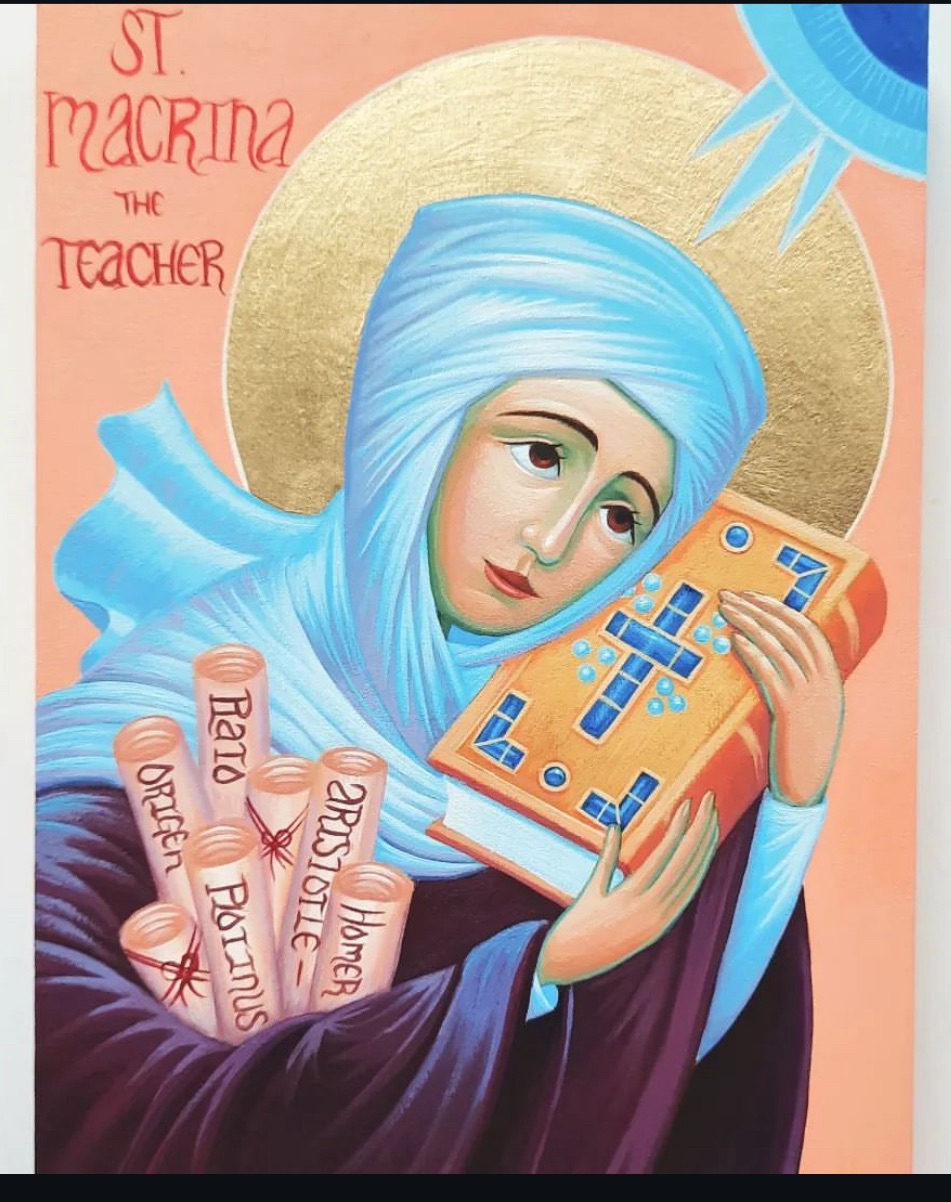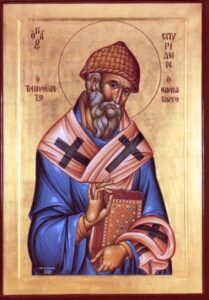St. Macrina the Younger: The Holy Sister of St. Basil the Great

Early Life and Background
St. Macrina the Younger was born in the year 324 in Caesarea, Cappadocia, to a devout Christian family renowned for their piety and intellectual prowess. She was the eldest child of Basil the Elder and Emmelia, and her siblings included some of the most prominent figures of early Christianity, such as St. Basil the Great, St. Gregory of Nyssa, and St. Peter of Sebaste. Named after her grandmother, St. Macrina the Elder, she was brought up in an environment that nurtured her spiritual and intellectual growth from a young age.
A Life of Devotion
From an early age, Macrina exhibited a profound spiritual inclination. Her parents ensured she received a comprehensive education, with her mother teaching her Scripture and the writings of early Christian theologians. Engaged to be married at a young age, Macrina’s life took a significant turn when her fiancé passed away. This event led her to dedicate her life entirely to God.
Rejecting further marriage proposals, Macrina chose the path of asceticism. She remained with her mother, supporting her and helping to raise her younger siblings. Her influence on her family was profound, and she played a crucial role in the spiritual formation of her brothers, especially Basil and Gregory, guiding them towards a monastic life.
Founding the Monastic Community
After the death of her father, Macrina and her mother Emmelia converted their family estate in Pontus into a monastic community. This community became a place where both men and women could pursue a life of prayer, work, and asceticism. Macrina’s leadership and spiritual wisdom were instrumental in the development of this monastic environment, which emphasized communal living, the sharing of goods, and a rigorous ascetic discipline.
Her brother, St. Gregory of Nyssa, recounts in his work, “Life of Macrina,” how she inspired those around her through her humility, devotion, and ascetic practices. Macrina’s commitment to the monastic life and her deep spiritual insights significantly influenced the monastic rules later developed by her brother St. Basil, which became foundational for Eastern monasticism.
Spiritual Wisdom and Influence
Macrina was known for her profound theological understanding and spiritual wisdom. St. Gregory of Nyssa recorded their conversations, particularly those concerning the soul and the resurrection, in his work “On the Soul and the Resurrection.” These dialogues reveal Macrina’s deep faith and her ability to articulate complex theological concepts with clarity and insight.
Her teachings and way of life left an indelible mark on her siblings, particularly on St. Gregory, who often referred to her as “the Teacher.” Her influence extended beyond her family, impacting the broader Christian community through the monastic traditions she helped establish and the spiritual guidance she provided.
Final Years and Legacy
St. Macrina continued to lead the monastic community with grace and wisdom until her passing in 379. Her final days were marked by intense suffering, which she bore with remarkable patience and faith. St. Gregory of Nyssa was by her side during her last moments and later wrote about the profound peace and sanctity that surrounded her death.
St. Macrina’s legacy endures in the Orthodox Christian tradition, where she is venerated as a model of piety, wisdom, and monastic virtue. Her feast day is celebrated on July 19th, and she is remembered for her unwavering faith, her role in the establishment of monasticism, and her profound spiritual influence on her renowned siblings.
St. Macrina the Younger stands as a beacon of spiritual strength and wisdom in the annals of Christian history. Her life, dedicated to God and the monastic ideal, continues to inspire the faithful. Through her teachings, leadership, and the monastic community she helped establish, St. Macrina has left a lasting legacy that continues to shape Orthodox Christian spirituality to this day.
As we reflect on her life, we are reminded of the power of faith, the importance of spiritual education, and the enduring impact of a life lived in devoted service to God and others. St. Macrina the Younger truly exemplifies the virtues of humility, wisdom, and piety, making her an enduring model for Christians everywhere.







